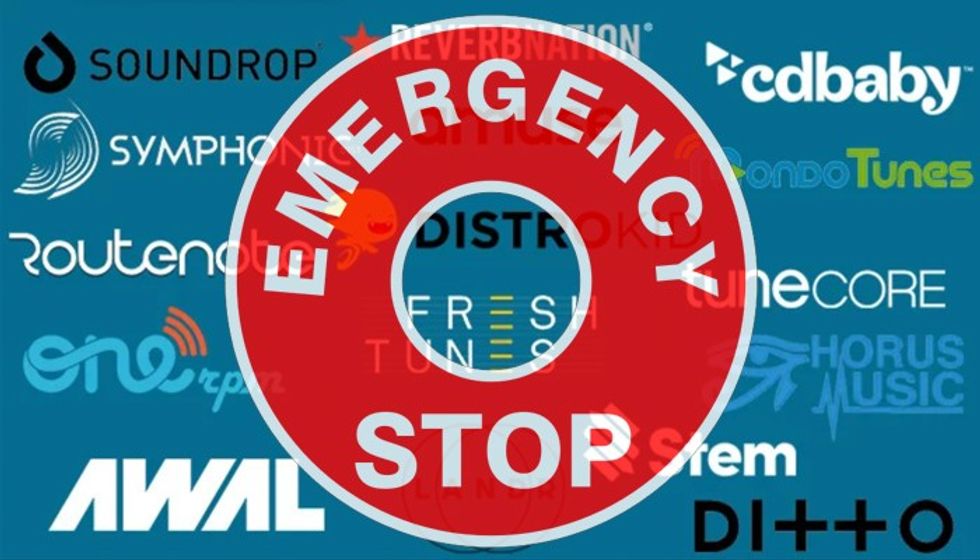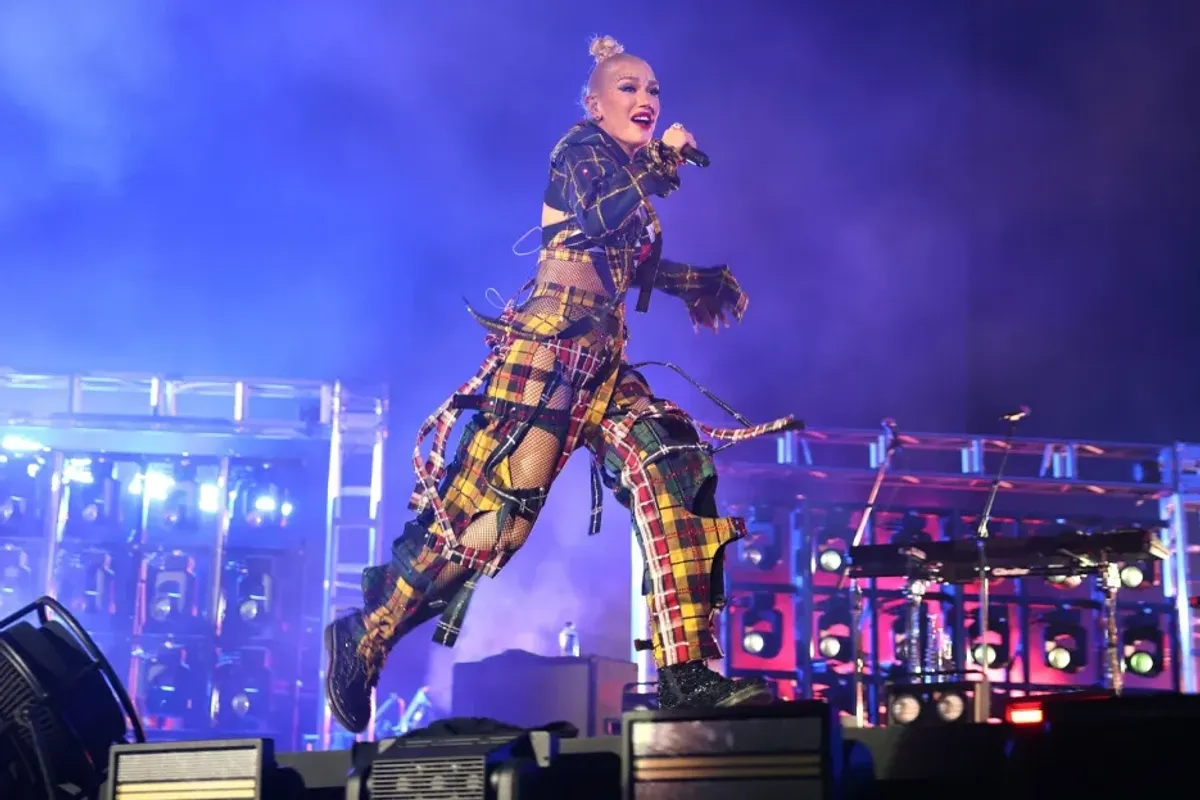
By External Source
Read this (and comment) on Ari’s Take
Because of my digital distribution comparison piece, I act as de facto customer service rep for all 16 companies I reviewed (yay me).
I lovingly try to let these artists and managers know that each company has their own customer service department at their disposal. But if they don’t get an adequate response (or no response at all), I’m usually notified.
I’ve heard it all: distributors' refusal to remove releases, misnumbered tracks (without a fix for weeks), release not appearing on release date, wrong titles, customer service delays (like 2+ weeks before a response), slow accounting, inaccurate accounting, flagged releases, removed releases without warning or explanation. You name it. I’ve probably heard about it.
But more recently, I’ve been getting messages from artists, managers and indie labels struggling with their distributors because their releases are getting flagged for suspicious streaming activity.
Let’s step back.
We are in a streaming-driven music industry now. That shouldn’t be a surprise to anyone. Because every stream is paid, it’s to the artists (and labels) benefit to maximize streams. Duh. How to do this effectively continues to evolve, seemingly daily. Of course on Spotify, playlists continue to be a driving factor at acquiring a large number of streams from a lot of listeners in a short amount of time.
We are in an era where consumption comes first, and fandom comes last.
This used to be flipped. Historically, people would hear a song on the radio or from a friend, become a fan of the artist, then buy and consume the album. Now, people hear songs on playlists and, sometimes, rarely, will they actually dig deep into the research to discover the name of the artist whose song they dug on the playlist. Sometimes, rarely, they will tap through to the Artist’s profile and listen to their most popular songs. Sometimes, rarely, they will listen to a recent album. And even less frequently, will they dig even deeper into that artist across social platforms and the internet at large. And then, maybe, will they decide to take action and become a true fan, supporting that artist financially by coming to their show, buying some merch, or backing their crowdfunding campaigns.
We are living in an era where there are artists with millions of streams on Spotify who cannot draw 50 people to their local shows.
These artists are making a solid living off of their Spotify streams, but don’t have any real fans. I’ve heard of artists who were able to quit their day jobs because they got included on a few hot playlists which earned them millions of streams a month (thousands of dollars a month), only to get dropped from those playlists and have to go beg for their job back when their streams dropped to virtually zero.
We are living in very interesting times.
The entire industry is obsessed with Spotify. And rightfully so. It has singlehandedly brought back the music industry and is the reason the major labels started to grow their bottom lines once again from the death spiral of the early aughts.
Discovery is no longer happening from blogs. But playlists.
And everyone is trying to figure out how to operate in this new, rapidly evolving streaming world.
Most artists, managers and labels' goals are to get more streams. How to do this is the topic of nearly every post-show conversation at the diner.
+Spotify Playlist Plugging Service, Playlist Push Review
As an artist who tries to help navigate this ever-changing landscape, I try to keep up with what is working and what is not.
And pass along my findings. In the process, I’ve run into some collateral damage. While testing out a playlist plugging service, my album was flagged and got removed by Spotify for suspicious activity. Ok, so I discovered that service didn't work. And I then let everyone know: DON’T USE STREAMIFY.
And then I proceeded to attempt to get my album - that I spent 3 years of my life, nearly lost a relationship over and went into debt to fund - back on Spotify. (I finally got it back up. But not because Spotify willingly put it back up, but by redistributing it. Spotify is pretty cut and dry about this kind of stuff. They seem to maintain a one strike, no questions, no comments, fuck you, policy).
And distributors are terrified of Spotify (just like they used to be terrified of Apple when iTunes was the #1 player). They know that if Spotify is regularly flagging their releases, they could be downgraded, or worse, blocked from distributing to Spotify altogether.
So distributors take an even harder edge approach with their clients (artist, managers, indie labels).
Most distributors have a one strike (fuck you) policy as well.
I recently got hit up by an indie label who was struggling with their distributor Ditto. (Now, I wasn’t going to name the distributor, but Ditto’s CEOs (they’re co-CEO brothers) continue to drag me through the mud on Twitter and continue to bash me every chance they get. So, I don’t need to throw them any favors). Longtime readers will remember my struggles with Ditto when they threatened to sue me and get me fired from a writing gig for simply asking a question - literally the identical question I asked every distributor while I was researching a royalty issue - And then the CEO proceeded to throw a hissy fit on Twitter against me. Yup, definitely a company you should be doing business with. Very professional. Very mature.)
But I digress.
This indie label said that Ditto had flagged their account (after they had paid them lots of money for various services and releases), but Ditto wouldn’t say why or even give them a chance to remedy the situation. For some odd reason, Ditto refused to remove the releases (after this indie label pleaded with them), they just (according to this indie label) froze their account (in effect, holding up royalties). And the only way this indie label could get their releases removed was by going directly to Spotify and pleading their case - asking Spotify to ask Ditto to remove their releases. Which, in the end, worked.
Mind you, this indie label (and their artists) depend on this revenue for their livelihood. And because Ditto’s internal team thought something was suspicious, they just froze their shit. Without explanation. Had Spotify flagged the release, Spotify would have removed it. But Ditto flagged it. Didn’t remove it. Continued to collect royalties. And refused to pay this label for 6 months.
This indie label added: "instead of offering us a solution, they even deleted our [support] tickets and access to their support site."
Cool guys. Real profesh.
---> As of this writing Ditto has not returned multiple requests for comment or clarity. If they do, I will add it. <--
The indie label I spoke with told me of their promotional and marketing efforts in earnest. They innocently (albeit naively) revealed how they were hiring various streaming promotions companies and marketing agencies to help their Spotify growth (along with promoting their curated playlists via Facebook ads). After looking at their stats, it’s plausible that some of these companies were using bots to inflate their streams. Was this indie label looking to ‘game the system?’ Absolutely not. Not by my judgment. I’ve been in their shoes!
Are there some players out there who ARE looking to game the system? 100%
So, this is the dilemma distributors run into. They have to simultaneously prevent people who are looking to game the system and make a quick buck, while helping educate their (legitimate) clients as to how best operate a healthy music career.
This is not an isolated incident with one distributor. Every distributor deals with this. I feel for them. I’m friends with many of the people who run distribution companies. They tell me their (off the record) stories of how people find creative ways to manipulate the system for their financial gain. Just like new scams pop up everyday in your inbox, people test out new approaches to wring out money from streaming platforms before getting caught.
This all being said, distributors, you need to do a much better job at helping (not punishing) your clients.
Don’t hide behind your one strike policy. That’s super shitty of you.
To many of these distribution companies’ credit, they do offer lots of helpful education materials with blogs, podcasts, and videos. But this is not enough. The most important thing you can educate your clients (artists, managers and labels) on is how to and how NOT to promote their music on streaming services. If you have a cut-throat policy and notice this is a problem, you should be mentioning this in every email, on the front page of your backend dashboard and it should be reiterated everywhere. Every time. Don’t hide it on page 17 of your terms of service and say “well, we are legally covered. Our job is done.”
Every red flag should be reviewed on a case by case basis and you should be in constant communication with your clients about it. You will be able to tell within one email if they are acting naively or nefariously. If you don’t have the manpower for this, then either hire more people or get more selective on who you allow to use your services.
It is your responsibility to assist your artist, manager and label clients. Stop punishing them. Help them.

















